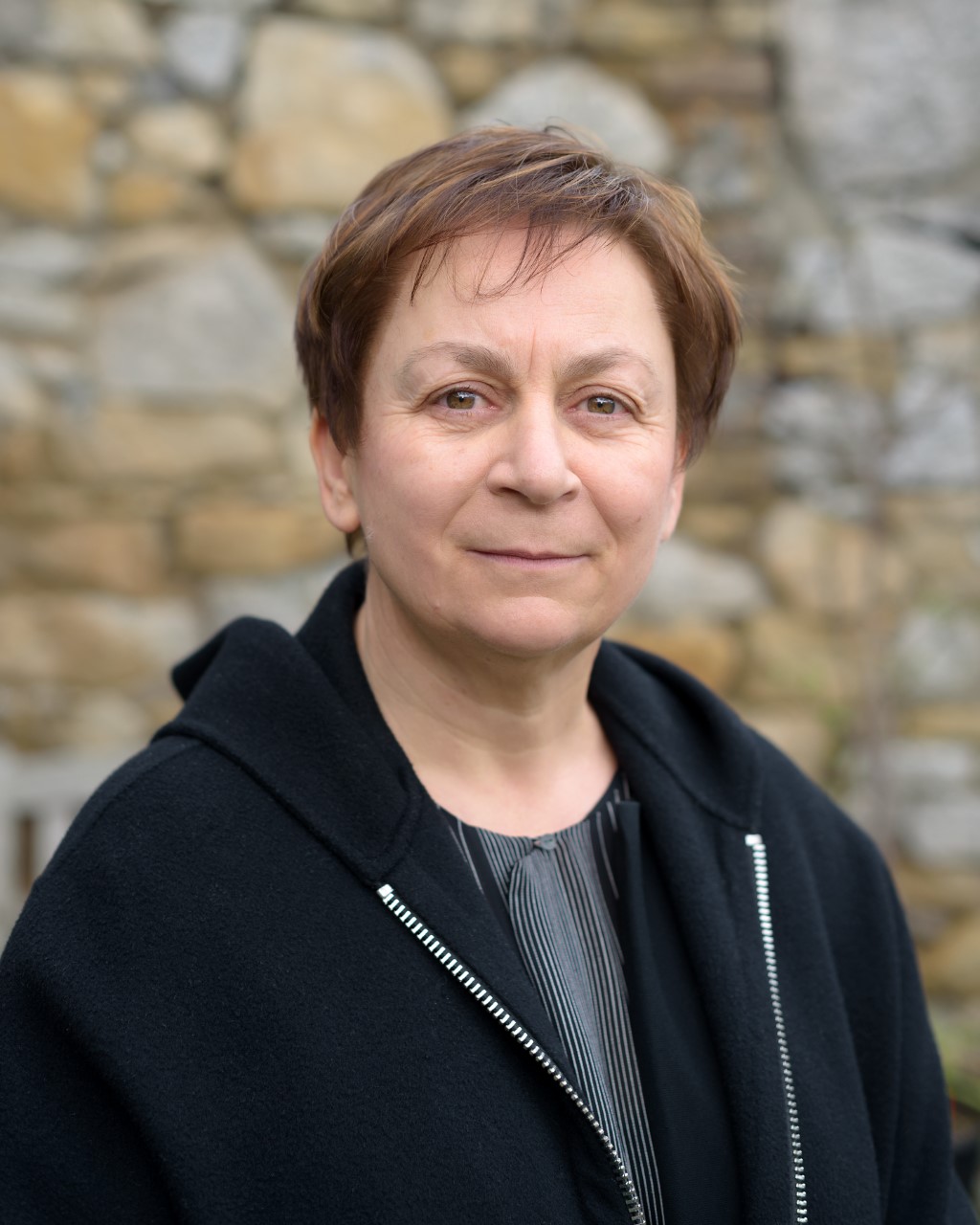In the March 11, 2021 issue of the Review, we published “Spirited Away” by Anne Enright, a review of two recent books on transcendence: T. M. Luhrmann’s How God Becomes Real, an anthropological study of how religious communities, from evangelical Christians to Zoroastrians, cultivate a tangible relationship with gods and spirits, and Eliot Weinberger’s Angels and Saints, part essay, part prose poem, and part theological study compiled from the vast, centuries-long archive that the titular beings have inspired.
Enright, who lives in Dublin, is a Booker Prize-winning author of seven novels, three short story collections, and a memoir. Her writing is preoccupied with family, sex, death, marriage, motherhood, Irish history, and occasionally, Catholicism. Her first novel, The Wig My Father Wore (1995)—“almost juvenilia now,” she commented to me over e-mail—featured an angel named Stephen. In her recent review, Enright describes the difficulty of understanding or representing angels, which exist in an uneasy limbo between the eternal and temporal, the intangible and the physical (“Can they smell?” she writes. “If not, why do they have noses?”).
I wondered if she drew on any particular sources in creating her fictional angel. The novel “owed everything to a little scrap of a story by Isaac Babel called ‘The Sin of Jesus,’” she told me. “This features a pregnant, much abused woman who begs Jesus for an angel to love, but when she gets one, she rolls over in the bed and crushes him.” Stephen, Enright’s angel, is a rather complicated love object as well, “absurdly beautiful and also celibate.” She was inspired as well by Gustav Davidson’s “slightly kabbalistic” Dictionary of Angels, and said, “on the Catholic side, I was already influenced by the queering of religious iconography in 1980s male gay culture.”
Enright describes her own religious experiences as a teenager, feeling a blissful sense of “group yearning” at prayer meetings, or seeing ghosts, though today she is content with writing fiction as her primary foray into the otherworldly, what she calls “the mental space where the imagined becomes meaningful.” Did she have a loss of faith later in life? “It was all a long time ago, but I don’t remember any great drama of possession and loss,” she told me. Before turning seventeen, she left Ireland for several years, “so I never got the chance to fall out with the charismatics, as other friends did, in some argument about the will of God. To be honest, I am not sure I ever lost my faith—which is, after all, not an object to be mislaid.”
She still sometimes feels a sense of mystical connection. “When people ask, ‘Do you believe in God?’ I want to answer, ‘Only late at night’—and that’s no use, is it? With something as big as God you don’t get to say ‘sometimes,’” she said. “This is my problem with religious systems, they take a small feeling about the absolute—one of sweetness or hope or even of moral joy—and they turn it into a big, authoritarian hoo-ha. I can’t be bothered with all that. I do worry, however, that secular thinkers refuse to understand how religion feels, and that refusal is not just shortsighted, it is also, in itself, interesting.”
How religion feels is the subject of Luhrmann’s book, and Enright devotes a significant chunk of her review to the very personal, inward kind of relationship that American evangelicals have with God, in which God helps with everyday problems and decisions—for instance, what kind of shampoo to buy. How does this compare to the Catholic relationship with God, I asked. “The Catholic experience of God seems quite inert compared to that of evangelicals and more located, by the sanctuary lamp, in the church building,” said Enright. “Historically, most of the miracles in Ireland took place outside the church and involved the Virgin Mary, while, inside the church, the people’s experience of God was hugely controlled (or usurped) by a male priesthood.” But she adds a disclaimer: “I was never really a proper Catholic. In my arrogance, I thought it a foolish religion for a woman, and much too interested in suffering.”
Nor is she particularly interested in novels concerning religion. “I am interested in metaphor, that is where I get my fix of transcendence,” she said. “I don’t like books about religion any more or less than I enjoy books about fathers or about political systems or about trees. That said, there is always the Bible, which I read from time to time.”
Enright had mentioned she was navigating care for her aging mother, and having written about the difficulties of pursuing her work while looking after young children earlier in her career, I asked how working during the pandemic had been for her.
Advertisement
“There have been some foggy and uncertain days, but I am working away now on a new novel and glad of the uninterrupted time,” she reported. “My mother is elderly and completely frail so I am part of her network of care, and this has meant quite a serious lockdown. But it is a network—I don’t feel unfairly burdened and that makes all the difference to me. I am really fortunate. Many women are having an unspeakably hard pandemic because of care issues, which are also issues of fairness. When I was younger, I used to think feminism was in some essential way about sex—to which younger self I now say, ‘HAH!’”



